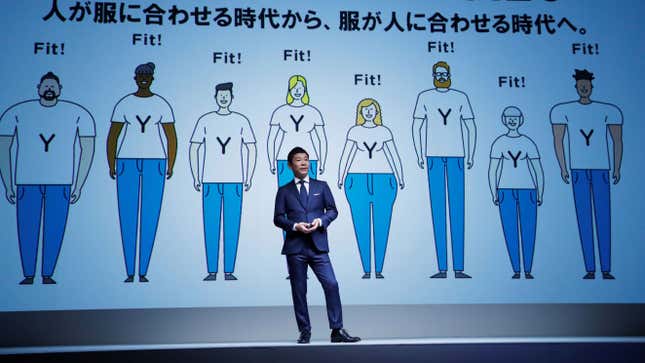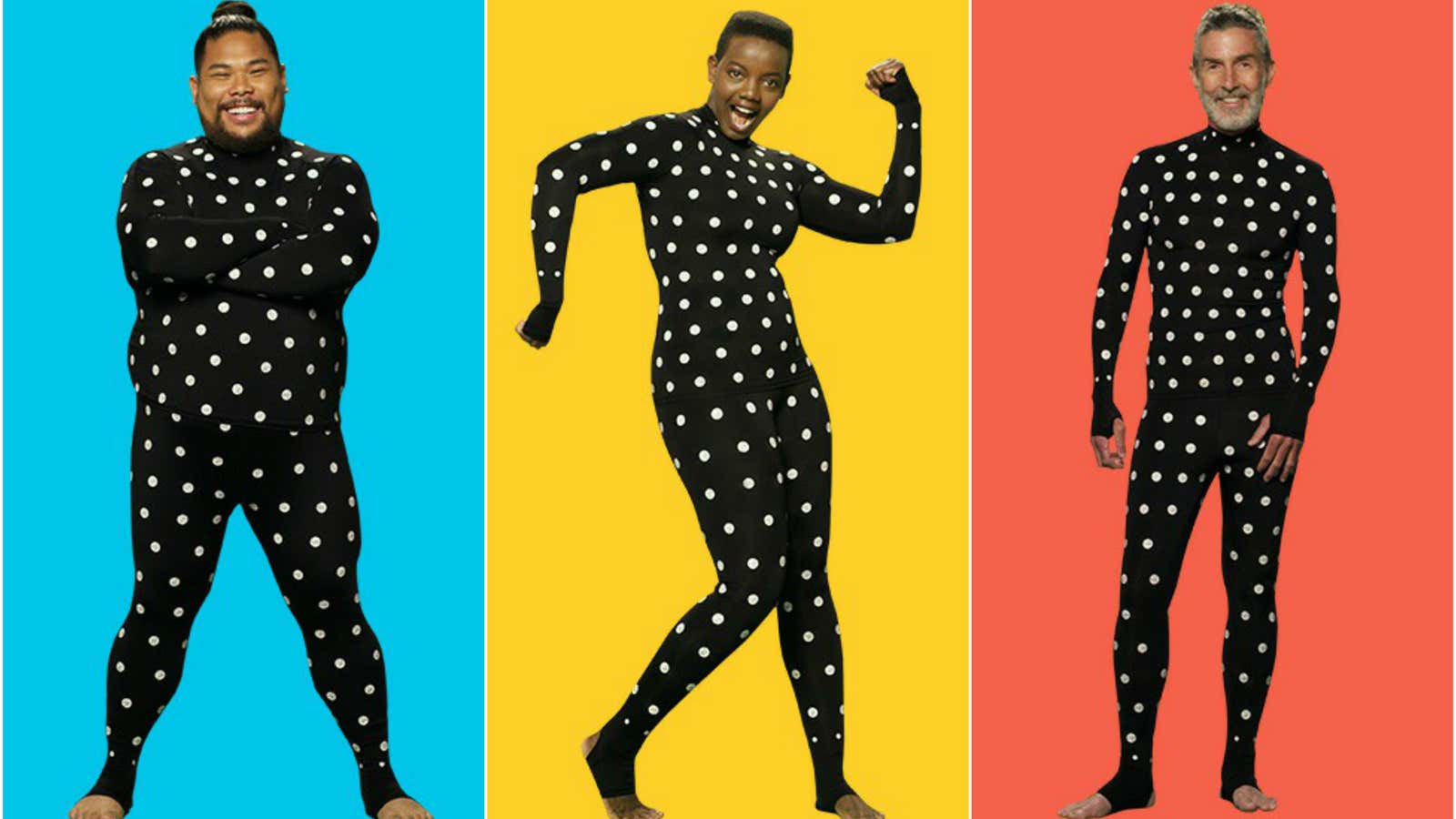Zozo, the company behind Japan’s largest fashion e-commerce site, wanted to transform the way people bought clothes online with its plan to eliminate standard sizing and offer every customer a near-custom level of fit.
Now after Zozo rapidly scaled up its hugely ambitious concept, launching online shops in 72 countries around the world to sell its clothes, it’s abruptly pulling back.
“It is with deep regret that we are writing to inform you that effective April 25, 2019, ZOZO has closed its international online shop in the Americas, Europe, Asia Pacific and the Middle East,” the company said in an email to customers. The Zozo app will be available until May 26, but shoppers can no longer order clothes or its polka-dotted Zozosuits—the secret to the unique fitting process it has used.
It’s a major turnabout for the company, which made costly investments in the project. Zozo isn’t calling the idea a failure. In fact, it’s enlisting partners such as Levi’s for a new plan.
About a year and a half ago, when Zozo launched its private-label brand, it believed that sizing as it exists isn’t up to the task of suiting the variety of shapes bodies come in. That was particularly the case for the rising number of consumers shopping online around the world who are unable to try on purchases beforehand. Zozo felt it could create a new market for clothes you could order knowing you would always get a perfect fit.
The secret to its radical idea was a somewhat silly-looking—but conceptually smart—spotted bodysuit that the Zozo app could read to make a 3D-model of the wearer’s body. With that data, Zozo could offer an individualized level of fit that was nearly the equivalent of making custom pieces for every shopper.
Zozo sent out millions of its Zozosuits for free, treating them as a marketing expense. Production delays and complaints about the clothing fit ensued, and orders didn’t come in as Zozo expected. The problem wasn’t so much the concept, which shoppers seemed eager for, but the execution.

In its notice that it would discontinue that business, Zozo said it will delete all personal data “except that which is required for tax and corporate purposes or to fulfill customer requests” by July 31, and all the body data it collected “will be anonymized and rendered unidentifiable” by that date. The company told Reuters it is debating the next stage of its made-to-order services.
Zozo, which still operates the giant Zozotown e-commerce site in Japan, hasn’t given up on the idea that clothes sizing is ripe for disruption. At a conference yesterday to discuss Zozo’s latest earnings, CEO Yusaku Maezawa said the venture proved there is demand for more nuanced sizing. In the fall, Zozo will launch a “multi-size platform” in collaboration with brands to sell a selection of items in more individualized sizes.
While Zozo’s private label sold items in what was effectively thousands of different sizes, these brand partners will offer 20 to 50, depending on the item. “We’re now selecting the actual items that we would like to sell in multi-sizes, and we are now having deliberation about specific topics, like how the look and feel of the website should be,” Maezawa said. He showed a slide with the mix of Japanese and international companies that have signed up, including Levi’s, Beams, Baycrews Group, Urban Research, Mark Styler, Stripe International, Daytona International, and Pal Group. More details are still to come.
Maezawa blamed Zozo’s shortcomings in its attempt to reinvent sizing on introducing too many new things to customers at once. This new approach, he believes, will be more focused. He’s predicting sales of at least 1 billion yen (about $9 million) in its first year.
